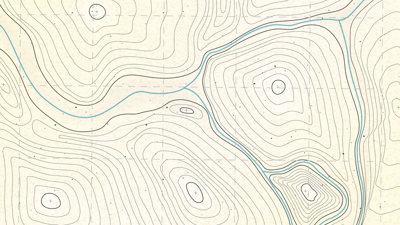How did you get to where you are now?
I fell in love with geography – in particular physical geography – at school thanks to some inspirational teaching, an innate love of the outdoors and a particular fascination with changing landscapes, before applying to study the subject at the University of Portsmouth.
Whilst at Portsmouth, I discovered geomorphology as a discipline which encapsulated much of what I loved about geography, and developed a strong interest in coastal geomorphology in particular. Keen to apply my interest to a career in coastal management, I went on to study for an MSc in Coastal & Marine Resource Management at Portsmouth. Whilst completing this course, I successfully applied to join the Environment Agency’s new Geomorphology Technical Service as a coastal specialist covering East Anglia and Lincolnshire. The role afforded me the chance to work on a variety of projects, helping ensure they work with natural processes.
In 2015 I was seconded to Natural England as Senior Specialist – Coastal Geomorphology. As the lead geomorphologist in the organisation, my job was to advise on the most complex and contentious conservation issues in England, including high profile beach management plans and major infrastructure projects.
Shortly after completing my secondment and returning the EA in 2016, I was promoted to my current role in the National Geomorphology Team. I am the coasts and estuaries lead for the team, advising on complex casework all around the country and acting as a leader for the discipline within the organisation.
Was there anything particularly useful that helped you get into this role?
At its heart, geomorphology is a field-based discipline, and the opportunity to get outside and expand on what you learn in the classroom is essential. I was lucky enough to attend a range of amazing field visits at university, which provided me with experience applying my learning, and broadened my knowledge of practical issues associated with managing dynamic coastlines. As well as being great fun, this experience proved extremely useful when applying for my first professional geomorphology role.
What do you do as part of your role?
As the coasts and estuaries lead in the national geomorphology team at the Environment Agency, my primary responsibilities are:
-
To act as a senior national specialist providing technical support to colleagues working on the most complex and demanding casework around the English coast.
-
To develop and steer policies, strategies and guidance at a national level, ensuring the EA and our partners apply geomorphology to our work at the coast.
The job is hugely diverse, and in any given week my time may be divided between providing detailed technical advice to support major projects (e.g. I’ve worked on a number of nuclear power station developments), helping to develop national strategies which shape the Environment Agency’s corporate objectives for the environment and risk management, steering research and development initiatives to ensure we have the evidence needed to support our work, and helping to train and mentor colleagues. Some of this involves me getting out on site, and some involves spending time in the office or travelling to meetings around the country (or very occasionally abroad).
What skills and characteristics do you need for this role, apart from geographical knowledge?
Communication skills – both written and oral – are key. Geomorphology is a complex discipline which can be difficult for non-specialists to understand, so I have to ensure that I can communicate in a manner which is accessible to the intended audience, without compromising on scientific accuracy and rigour. In my current role, it is also particularly important to be able to build and maintain relationships with key partners, and provide effective leadership for the subject of coastal geomorphology.
What do you enjoy most about your job?
My main motivation professionally is to improve things for people and the environment, and I’m extremely fortunate to have the opportunity to use a science about which I’m passionate to try and do just that. Working with amazing colleagues to try and find solutions to complex challenges is both mentally stimulating and hugely rewarding.
What are the opportunities for career progression? What might you be doing in five years’ time?
The Environment Agency is a large organisation with a very broad remit, so the opportunities are numerous. Since coasts and estuaries are my passion, I hope to continue develop as a leader for those environments within the organisation and beyond, particularly on the subjects of risk management and conservation.
Do you get to travel for your role?
I’m often required to do site visits to examine particular issues at locations around the English coast. In my career to date I’m lucky enough to have visited sites on just about all of our major coastlines, from the sandy beaches and dunes of Northumberland and Cumbria in the north, Yorkshire’s cliffs and the low lying fenlands of Lincolnshire and Norfolk, to Suffolk’s heathlands, the muddy estuaries of Essex, the distinctive gravel beaches of the south coast and Cornwall’s rocky cliffs and surfer spots.
I’ve also been particularly fortunate to work on a couple of projects which have afforded me the opportunity to travel internationally, including attending meetings and conferences in Italy, Spain, the Netherlands, Germany and the USA. Travelling to California to join an international team of experts developing guidance on working with nature in flood and erosion risk management is a particular highlight, and included the opportunity for some amazing site visits. I adore England’s beaches, but watching sea otters play in the Pacific kelp beds whilst pelicans flew overhead was a special moment.
How does geography feature in your work/what difference does it make?
Geomorphology is the science of the land itself, and how people and wildlife interact with changing landforms. In my (admittedly biased) opinion, that’s the essence of geography distilled!
What advice would you give to someone wanting to go in to this career?
Take as many opportunities to get out on site and see geography in action as you can! Practical knowledge of real world application of the subject is key, alongside technical understanding. If geomorphology is your thing, it’s also worth joining the British Society for Geomorphology to keep up to speed with the latest research and network with like-minded professionals and students.
I would also encourage you to think about contacting people in the industry, or researchers doing work which you’re particularly interested in. You’ll generally find that if people are passionate about what they do, they’ll happily share their knowledge and experience with you, or point you in the direction of helpful resources. You may even end up in their thoughts when they next look to recruit or set up placement opportunities.
Why did you choose geography? Why should others choose geography?
Geography is the study of places, and how people interact with them and each other. That means it encompasses just about all of the world’s major issues. From climate change, hazard management, and the biodiversity crisis, to pandemic response and global conflicts, geographers will be central to efforts to overcome many of our greatest challenges. It has never been more important for people to study and understand geography than it is right now.
* This interview was undertaken in 2021 and was correct at the time of publication. Please note that the featured individual may no longer be in role, but the profile has been kept for career pathway and informational purposes.

